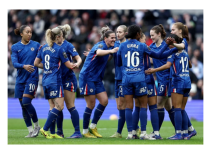The Socio-Economic Rights and Accountability Project (SERAP) demanding the immediate reversal of the controversial ban on Eedris Abdulkareem’s protest song, “Tell Your Papa”.
The battle for freedom of expression in Nigeria took a sharp turn as the rights organization gave the ultimatum is to both the Federal Government and the National Broadcasting Commission (NBC).
The song, which was released in April 2025, boldly criticizes the governance of President Bola Tinubu and calls attention to the economic turmoil affecting millions of Nigerians. It was swiftly banned by the NBC, which deemed its content “objectionable.”
However, SERAP argues that the ban infringes on fundamental rights enshrined in both Nigerian and international law, particularly the rights to freedom of expression and access to information.
In a statement, SERAP has made it clear that if the ban is not lifted within 48 hours, it will pursue legal action against both the NBC and the government, describing the move as an assault on Nigerians’ right to voice dissent.
The ban has ignited a fierce national debate about censorship in the country, drawing sharp criticism from organizations such as the Performing Musicians Association of Nigeria (PMAN). PMAN President Pretty Okafor argued that the ban could inadvertently drive even more public interest toward the song, suggesting that prohibiting content often increases its appeal among the masses, especially those critical of government actions.
This latest controversy is not the first time the NBC has found itself at the center of a legal storm. In 2021, SERAP and 24 other Nigerians took the government to the ECOWAS Community Court of Justice, challenging the arbitrary use of broadcasting regulations to silence media voices. The case, which focused on the unjust targeting of media outlets, is still fresh in the minds of those fighting for press freedom and free speech in Nigeria.
As SERAP’s deadline draws near, all eyes are on the government and the NBC, with the outcome of this case likely to have far-reaching implications on the delicate balance between government regulation and fundamental rights. With tensions rising, the battle over “Tell Your Papa” is poised to set a significant precedent for the future of artistic expression and free speech in Nigeria.
































